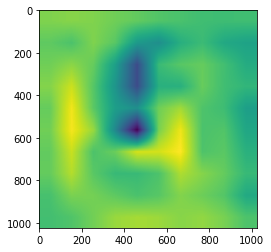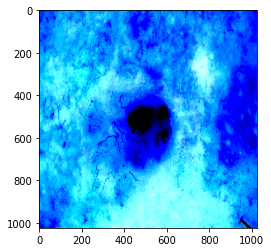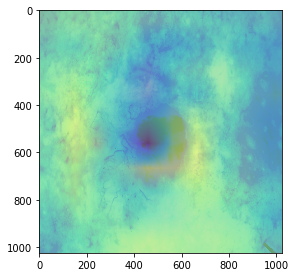Hello,
I am still learning cv2 and trying to understand how to get things done.
I have a heatmap of size (1024, 1024) which is in the range of 0.0 and 1.0. The heatmap is of type 'float64' and it looks like this

I have an image of size (1024, 1024, 3) of type 'float32'.

When I superimpose heatmap on image using matplotlib, it works fine.
colormap = 'plasma'
fig = plt.figure(figsize=(20,20))
ax2 = plt.subplot(1, 4, 3, aspect='equal')
ax2.imshow(np.squeeze(img), alpha = 0.5, cmap='plasma')
hm = ax2.imshow(heatmap, alpha = 0.5)
Result is:

How do I do the same using cv2?
I tried:
output = cv2.addWeighted(heatmap, 0.7, img, 0.3, 0)
It gave me the following error:
error: OpenCV(4.2.0) C:\projects\opencv-python\opencv\modules\core\src\arithm.cpp:669: error: (-209:Sizes of input arguments do not match) The operation is neither 'array op array' (where arrays have the same size and the same number of channels), nor 'array op scalar', nor 'scalar op array' in function 'cv::arithm_op'
In order to match the size of heatmap and the image,
heatmap1 = cv2.cvtColor(heatmap.astype('float32'), cv2.COLOR_GRAY2RGB)
Now, the shape is (1024, 1024, 3), but when I plotted heatmap1 it shows

Any help or suggestions would be of great help! Thank you :)
Please note that I would like to keep the image and the heatmap in the range of [-1, 1] or [0,1] if possible. Converting the input image to dtype 'uint16' doesn't really work well. It shows the image with noise.

